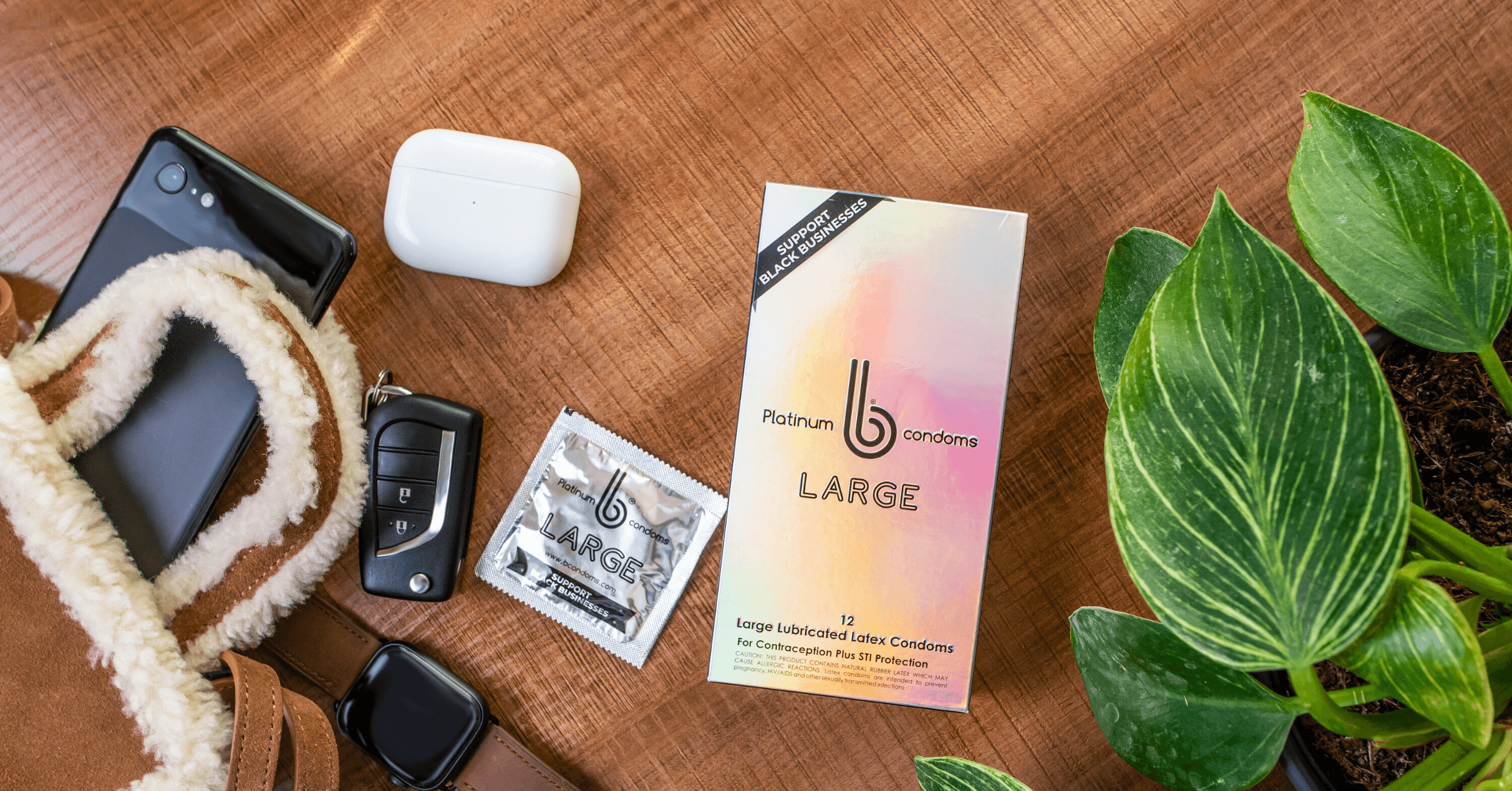Ayanna Jones is a 29-year-old traveling chef who splits her time between Dallas, TX and Temecula, CA. Sometime last year she received a direct message from Miiriya [Me-e-ree-ya], a Black-owned ecommerce platform for Black creators, inviting her to be a vendor on their new app.
Intrigued by the opportunity, Jones, who also sells handmade organic vegan spices, accepted the invitation to be one of Miiriya’s first sellers.
“I thought it was another way to create more income through this app, cause they said it was a Black-owned app. I thought it would be a great opportunity that might be monumental in the next coming years,” Jones said.
The app featured Black vendors from across the country, selling apparel, beauty, decor and hair products, as well as art and much more. She describes signing up as a vendor as simple, like Amazon, where she also sells. She simply had to create an account and from there she could start selling her products.
In the beginning, traction on Miiriya was slow, but as the app grew in popularity, so did Jones’ shop.
Within months of building a profile, visits to her personal website more than doubled, and more importantly, so did her sales. Beyond the exposure, she loved how authentic and supportive Miiriya’s solo-founder and creator, Lamine Coco, was to Black vendors.
“He walks you through everything and makes sure you’re solid. It’s the greatest asset in the business,” she said. “It’s really personable. If there’s an issue, he responds back very quickly. He pushes you and promotes everyone on the app, not just what’s popular or trendy like Amazon. Also, [as a vendor or buyer] you see everybody, there’s truly no popular competition.”
Miiriya’s competitors in the Black ecommerce space
From HellaBlack to WeBuyBlack to Katika to Official Black Wall Street and Ourbom, there’s no shortage of Black-owned marketplaces specializing in fashion, beauty and homeware products.
Since the pandemic and the murder of George Floyd last May, the field has seen countless new Black ecommerce spaces being launched.
In a crowded ecommerce landscape that already includes marketplace giants, like Amazon and Etsy, two questions come to mind: Is there a need for a Black-owned digital marketplace, and if yes, how does one stick out and scale?
For Lamine Coco, the founder and creator of Miiriya, the answer is a resounding yes. He built the app because of an observed lack of exposure for Black business owners and has committed to helping Black vendors grow and build wealth from their brands.
While most of his competitors make a profit from their e-commerce platforms, Coco intentionally does not.
“My goal for the site in the community is to run this website in a socialistic way…There are absolutely no fees for vendors, and all money made from the site will be seeped back into solving different issues in our community,” Coco said online.
My goal is also to give the vendors an option to give a percentage of what they earn to help fix problems in our communities, funding things like our healthcare/education/build shelters/create lunch programs like a few black socialistic groups from 60s/70s https://t.co/jcGnToyNbu pic.twitter.com/mm4PzsKYEQ
— Miiriya (@miiriya1) May 22, 2021
This mission statement has resonated with Miiriya’s customers like Alia Pyatt, a Los Angeles-based content creator.
“It is important to me to support Black businesses in general but especially new Black businesses,” she said. “I want to contribute to the goal of keeping Black dollars in the community as much as possible.”
Vendors on the app, like Mariah, a 19-year-old jewelry designer and resin artist from Indiana, have appreciated that the app doesn’t charge vendors.
“Miiriya simply uplifts Black people and helps them and asks for nothing in return,” she said.
“I like that the money I make is mine to keep and I don’t have to pay any additional fees. Businesses like Amazon and Etsy are just corporations making money off of people’s hard work. That’s not fair.”
In the aftermath of George Floyd’s murder, companies across the U.S., including Amazon and Etsy, issued #BlackLivesMatter and Diversity, Equity, and Inclusion statements. This year, many have been asking corporate America about the implementation of these statements.
Last summer, Amazon donated $27 million dollars to the NAACP, National Urban League, Thurgood Marshall College Fund, UNCF, and other organizations, in an effort to support education and justice for Black communities across the U.S.
In June, The Plug reported that Amazon was launching a $150 million program, in partnership with Minority Business Development Agency and U.S. Black Chambers Inc., to grow Black sellers on the platform.
Etsy, on the other hand, raised $1 million dollars for social justice reform and Black-Led Institutions, last summer. They’ve also committed to doubling the percentage of Black and Latin-X vendors by 2023, as well as ensuring that 50 percent of Etsy’s small and medium-sized enterprise suppliers are owned by women, minorities or veterans by 2022.
How social media became Miiriya’s go-to tool for marketing and user acquisition
With no venture capital or big investors, as of yet, Miiriya has carved a market for itself with young, Black and Brown consumers, many of them creatives. To reach these customers, Coco developed an unfiltered and unique Twitter persona for Miiriya, whose viral tweets and clapbacks has helped the brand build a nearly 50,000 following on the platform.
& I’m gonna say it again cause I genuinely think others gonna leave it as is & majority black men with fashion brands gonna continue wonderin why they not gettin support. cause the suggestions youre gonn get gonna be black men luxury designers($)/Tshirts/suits. It needs to evolve https://t.co/QToJHLQT5p pic.twitter.com/gLDvXDi9Zb
— Miiriya (@miiriya1) August 23, 2021
One consumer, Sameeh Khaled, a Bangladeshi Mexican-American, from Dallas, said Miiriya is built to last, and that its social media presence has helped it separate itself from its competitors.
“The social impact really encouraged me to keep pushing for it and telling other people about that,” she told The Plug.
A senior computer science college student, Khaled loves testing new apps, learning about their interface and understanding what works well and what doesn’t. Though she recognizes that the app could use some help, she applauds Lamine.
“From a market standpoint, it’s good, because Miiriya is very interactive with social media. You can tell that they are looking. They are monitoring, they care, they are working towards doing better. That builds more of a connection to the company,” she added.
Beyond the social media presence, Khaled said that Miiriya is filling a need that is currently not met in the market—a safe space for Black people to connect and support each other online.
“When has anything been inclusive for Black people, how many markets are dominated by people profiting off of Black talent and creations?” Khaled added. “If I go to the beauty supply store, who owns it? Not Black people or Black women. You cannot sit there and focus your business on somebody else’s culture!”
Miiriya’s socialistic approach, dedication to empowering Black communities and its creator’s authentic interaction with Black and Brown consumers has popularized the platform. Coco has created a brand and growing following, who are all rooting for him and Miiriya to succeed.
“He’s a marketing genius. There’s no other company like that on Twitter and he makes sure they are constantly promoting, but in a funny way,” said Ayanna Jones. “This gains people’s attention. The more this happens, the more people will become hip to these things and want to be part of it. That personality he has can go further than this app.”








